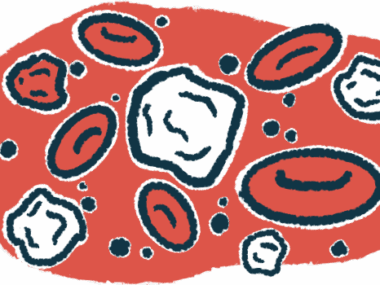Dosing Completed in Phase 1 Study of GTP-004 for Myasthenia Gravis Treatment Side Effects
Written by |

Dosing has been completed in the Phase 1 clinical trial of GTP-004, a new candidate for the treatment of symptoms associated with myasthenia gravis (MG), including gastrointestinal side effects of pyridostigmine, the investigational therapy’s developer, GT Biopharma, announced.
Preliminary results suggest that GTP-004 enables the safe and well-tolerated administration of pyridostigmine, one of the active compounds in GTP-004.
To address symptoms of MG, physicians often treat muscle weakness with acetylcholinesterase inhibitors such as Mestinon (pyridostigmine), which don’t cross the blood-brain barrier. While acetylcholinesterase inhibitors have been shown to be effective in halting muscle weakness, they also cause intolerable gastrointestinal (GI) side effects such as diarrhea, nausea, and vomiting. These side effects can be a significant source of discomfort for patients and may limit the amount of medicine a patient can take, reducing the treatment’s effectiveness.
GTP-004 combines pyridostigmine with ondansetron to alleviate the GI side effects of pyridostigmine alone. The combination therapy is an advancement in the safe and effective dosing of pyridostigmine.
The objective of the Phase 1 study is to demonstrate that GI side effects are safely reduced with GTP-004 in five volunteers enrolled in the trial. Following enrollment, participants received single increasing oral doses of pyridostigmine, from 30 mg to 120 mg, administered each day in the morning. Once they reported reaching the first intolerable dose (FID1), as defined by the study’s protocol criteria, researchers stopped dose escalation and participants halted treatment for two to seven days. Then, they received daily increasing doses of pyridostigmine in combination with ondansetron.
FID1 occurred at 60 mg of pyridostigmine alone for two participants and at 90 mg for a third participant. When the three received GTP-004, GI side effects stopped and all participants tolerated doses as high as 120 mg, the maximum allowed by protocol.
“These are early results, but the data provide evidence of the ability of GTP-004 to avoid the GI side effects of administering pyridostigmine alone and offer hope to all those suffering from myasthenic syndromes,” Kathleen Clarence-Smith, chief executive officer of GT Biopharma, said in a press release.
GT Biopharma initiated the proof-of-concept Phase 1 clinical trial in December 2017. Based on these positive results, GT Biopharma anticipates initiating Phase 2 clinical studies of GTP-004 in the second half of 2018.
Only Mestinon and Prostigmin (neostigmine) are approved by the U.S. Food and Drug Administration (FDA) to treat muscle weakness and fatigue in patients with MG. Both drugs belong to the class of acetylcholinesterase inhibitors, meaning they work by blocking an enzyme called acetylcholine esterase.



Leave a comment
Fill in the required fields to post. Your email address will not be published.